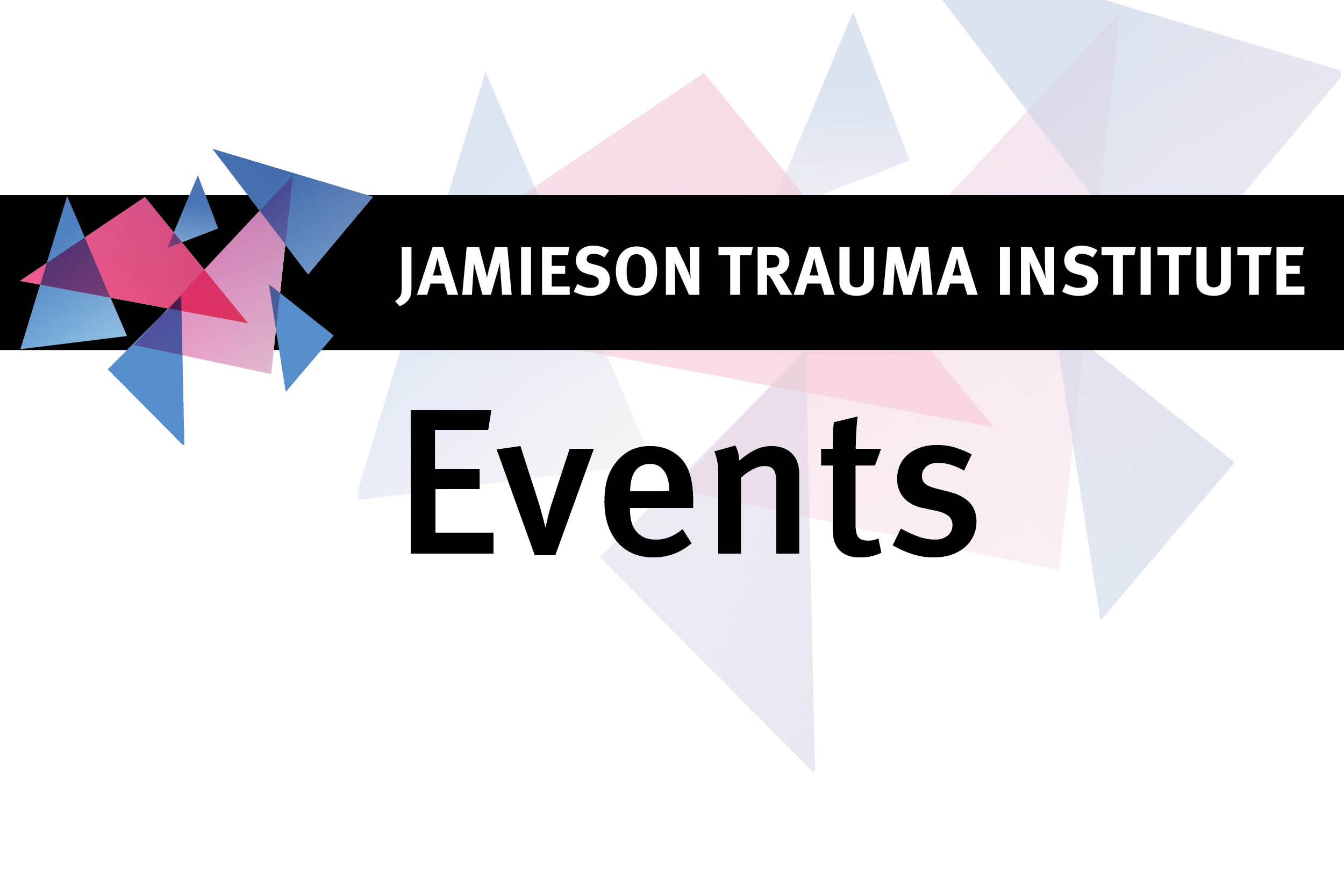
JTI Newsletter – October 2024
Contents
Welcome to JTI News
Dear colleagues,
Welcome to the October 2024 edition of the JTI newsletter.
Last month we held our 6th annual Strategic Planning and Engagement Day. The JTI team met with our funders and stakeholders to determine JTI’s strategic direction for the year (and years) ahead.
Here’s a brief overview of the day:
– The day commenced with an internal session, in which the whole JTI team and postgraduate students put their heads together to finesse the vision, mission and goals of the institute.
– A fireside chat with our key funders, moderated by Prof Vivienne Tippett. Executives from Metro North Health, Motor Accident Insurance Commission and Queensland University of Technology gave us first-hand exposure to their perspectives on what JTI has done for them so far, and their priorities for the near future.
– A panel discussion with stakeholders, chaired by Prof Michael Schuetz and A/Prof Cliff Pollard. Key representatives from Queensland Health Office of Research and Innovation and Clinical Excellence Queensland, Australian Centre for Health Services Innovation (QUT), Amazon Web Services, the Queensland Trauma Clinical Network and the Department of Transport and Main Roads, generously shared their insights and opinions with us and we explored opportunities for alignment and collaboration.
– We felt inspired by our guest presenter, Prof Belinda Gabbe from Monash University, who discussed trauma survivorship and the importance of measuring outcomes that matter to trauma patients.
The environment was productive and engaging. Tim Cudmore, consumer representative, joined us on the day, and we all shared a drink at the end of the event.
We are now ready to convert thought and discussions into actions.
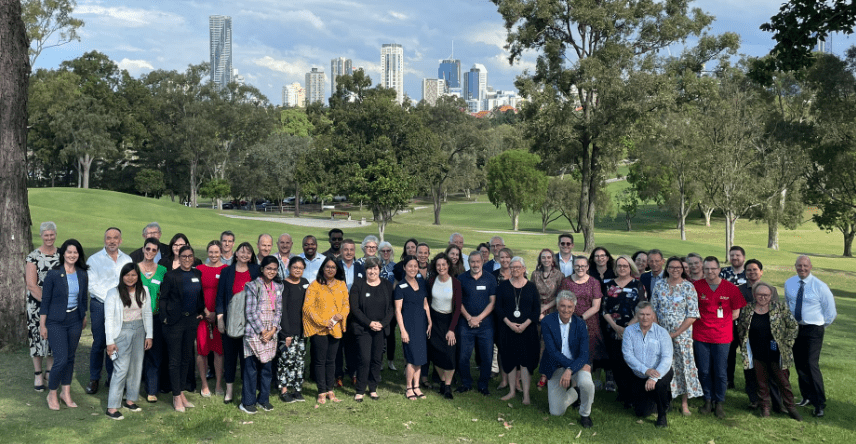
JTI team, funders and stakeholders at Victoria Park
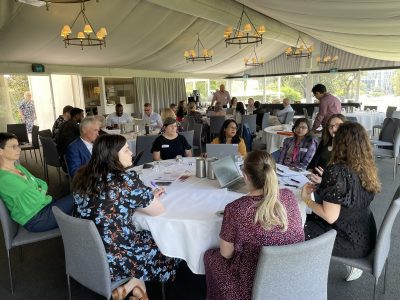
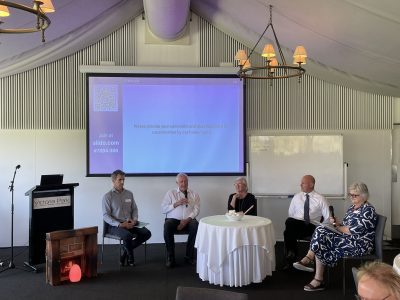
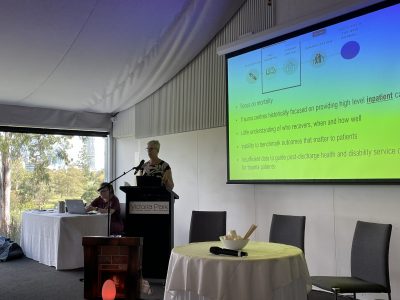
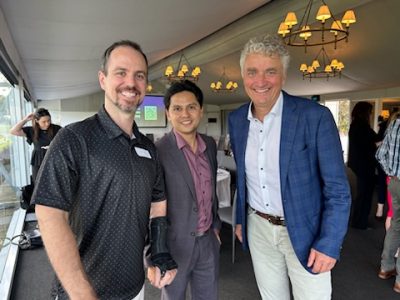
Early Games Legacy project: Pioneering disability access and inclusion in sports
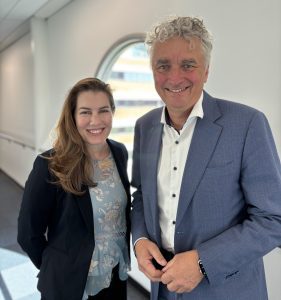
Dr Tanya Smyth and Prof Michael Schuetz
JTI is thrilled to announce a new collaboration with key academic and advocacy partners which aims to significantly enhance sports participation among Queenslanders with disabilities and leave a meaningful legacy for the 2032 Olympic and Paralympic Games. In collaboration with Queenslanders with Disability Network, Queensland University of Technology, The University of Queensland, Griffith University, and consumer advocates, JTI will spearhead this research initiative.
The “Empower” project will undertake an extensive mapping of Queensland’s disability population to identify and address barriers to sports participation. The research will produce evidence-based strategies to foster inclusive sports and recreation opportunities, aligning with the broader goals of the Brisbane 2032 Games and the Elevate 2042 legacy strategy.
This is a milestone project set to benefit many Queenslanders. As we approach 2032, this initiative represents a pivotal moment to drive positive change in disability sports access. Our collaboration with esteemed institutions and organizations will turn research into actionable strategies, ensuring a more inclusive sporting environment for Queenslanders with disabilities.
STOP THE BLEED®
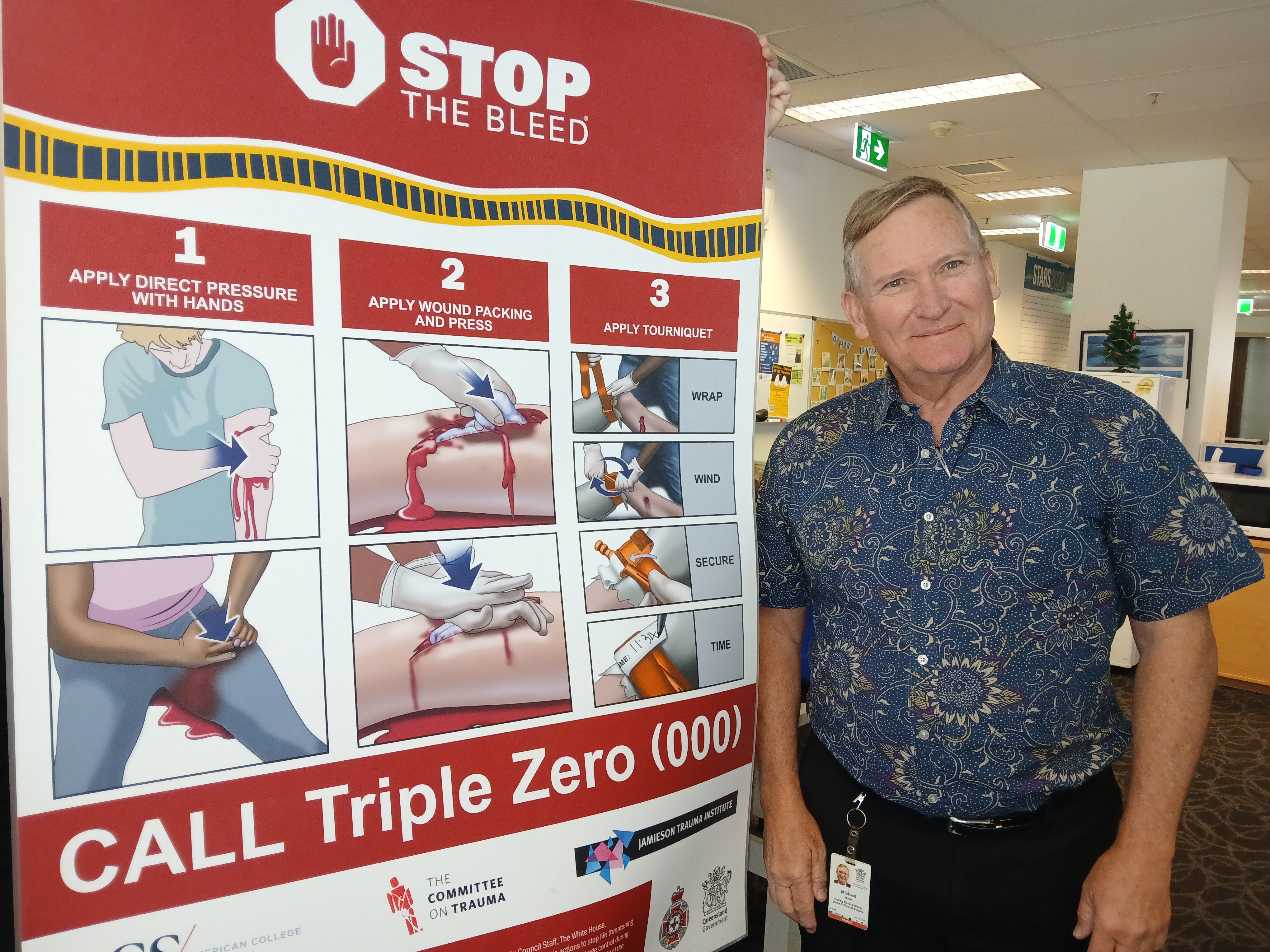
Prof Michael Muller
STOP THE BLEED® teaches haemorrhage control techniques – pressure/packing/tourniquet – for civilians/immediate responders/bystanders to deliver until the arrival of first responders.
The Jamieson Trauma Institute runs STOP THE BLEED® in partnership with Queensland Ambulance Service. Train-the-trainers activities have been conducted in Brisbane and Gold Coast, and Jellinbah mine near Blackwater, and the goal is to deliver STOP THE BLEED® alongside CPR training by Local Area Committees of Ambulance. Ambulance Field Officers in remote Indigenous Communities will teach STB using Yarning Circle technique – no PowerPoint up there! STOP THE BLEED® has been incorporated into the P.A.R.T.Y. (Prevent Alcohol and Risk-related Trauma in Youth) program, with up to 4,500 secondary students being exposed to bleeding control.
Understanding Lithium-ion battery related burns
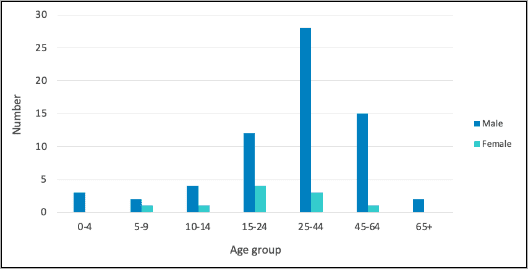
Lithium-ion burns by age group
Lithium-ion battery-related burns are becoming more frequent, and we have joined efforts with our close partners RBWH Trauma Service and Queensland Injury Surveillance Unit (QISU) to describe the problem and improve our understanding. The majority of inpatient managed cases at RBWH were due to larger Lithium-ion batteries used in e-scooters, and over half of the ED presentations recorded by QISU were from energy storage devices such as powerpacks. These results stress the need for primary prevention through design, technological and behavioural strategies.
Clinician-researcher: Dr Daniel Brimm

Dr Daniel Brimm
Dr Daniel Brimm undertook a placement with JTI in the early days of the COVID-19 pandemic, when he was a third year medical student at UQ. Since then, Daniel has presented and published the work that he conducted with JTI Data Analyst A/Prof Shahera Banu, which has recently been selected for the top four papers at the 2024 AOA Queensland Branch Registrar Papers Day and QORF Collaborative MSK Research Meeting. He will also be presenting at the upcoming 2024 AOA Annual Scientific Meeting.
Did you know…?
Images on the Queensland Health Digital Transformation Roadmap 2023-2033 and the HEALTHQ32: Research Strategy 2032 feature the UQ NeuroRehabilitation and Medical Robotics Lab, led by Alejandro Melendez-Calderon, UQ Senior Lecturer and JTI Principal Research Fellow.
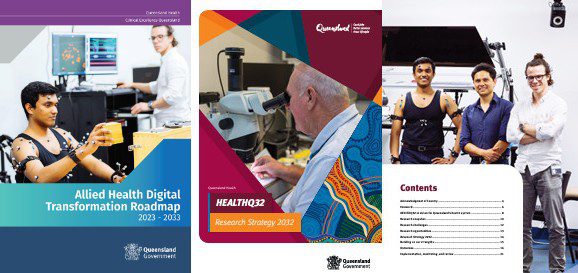

Dr Kenneth Jamieson
JTI is named after Dr Kenneth Grant Jamieson, regarded as one of Australia’s best neurosurgeons. Dr Jamieson was a passionate advocate for trauma prevention and data analytics. In the early 1970s, Dr Jamieson’s research and advocacy contributed to legislation regulating the use of seat belts, and he played a vital role in the Royal Australasian College of Surgeons’ establishment of its National Road Trauma Committee.

